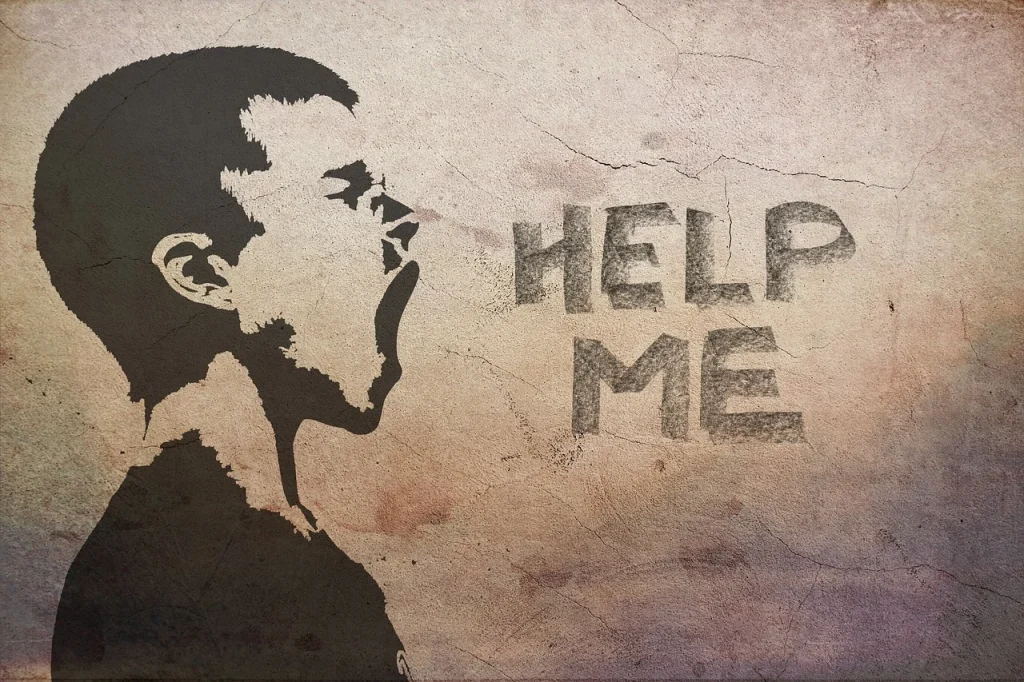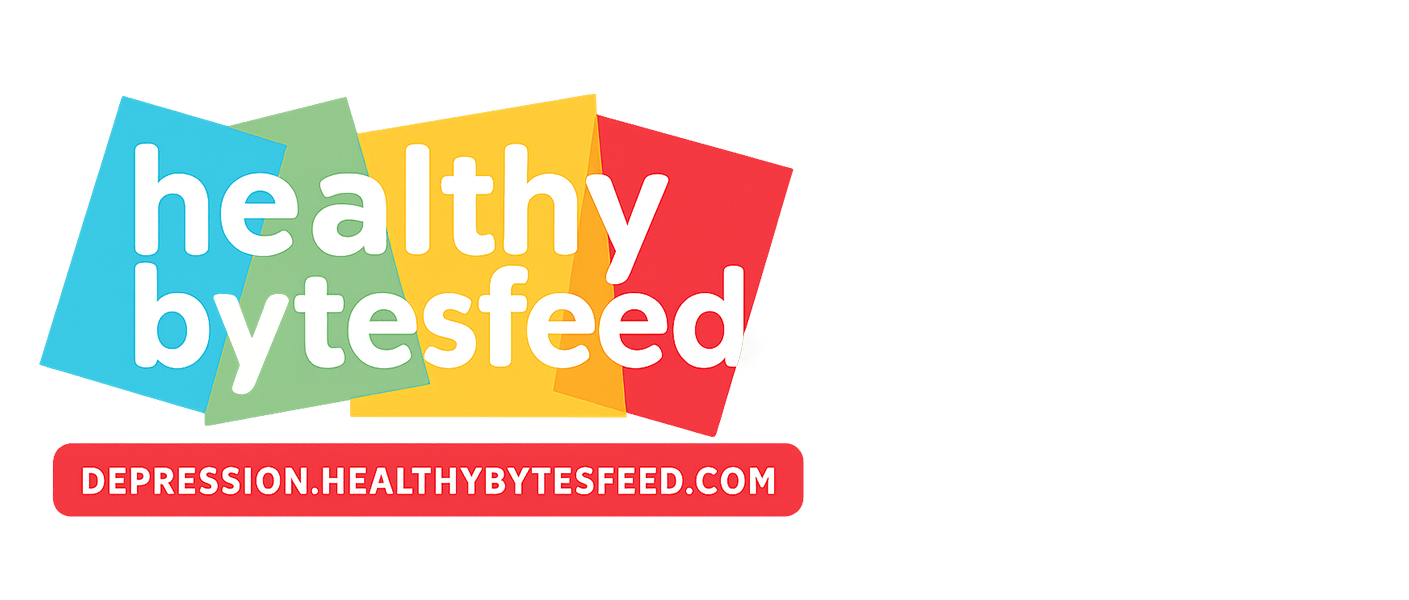- 1、Don’t Wait for Tragedy: How Dangerous Are These “Joke-Like” Cries for Help?
- 2、True Stories: Those Misinterpreted “Disappearance” Signals Almost Took Them Away
- 3、Key Points: 6 Hidden Expressions—Depression Crying for Help
- 4、Correct Response: What to Do When You Receive a “Cry for Help”
- 5、Conclusion: Your “Understanding” Might Be Someone Else’s “Lifeline”
- 6、References
- 7、Disclaimer
“I wish I could just vanish” “It would be better if I never existed”—when someone around you says things like this, many people dismiss it as a “casual complaint” or “overdramatic rant,” responding with a laugh: “Don’t overthink it” “That’s too exaggerated.” But clinical data from the U.S. National Institute of Mental Health (NIMH) shows that approximately 68% of people with depression will send hidden cries for help through vague language before a crisis, and “wanting to disappear” is one of the most typical expressions ¹.
As a volunteer who once participated in an international youth mental health aid program, I’ve seen too many regrets caused by “misinterpreting signals”: someone took a friend’s sigh “Living is tiring” as “just work stress,” only to regret it when the friend went missing; others attributed a family member’s self-deprecation “I’m such a burden” to “a bad mood,” ultimately missing the window for intervention. In reality, depression rarely cries out for help directly with “I need help”—more often, it hides “secret codes” in daily conversations. Understanding these 6 expressions might just help you pull someone back from the edge in time.
Don’t Wait for Tragedy: How Dangerous Are These “Joke-Like” Cries for Help?
NIMH defines the “hidden cries for help” of people with depression as “indirect expressions of emotional pain,” with the core characteristic of “using self-denying, existence-avoiding language to convey a desire for relief.” Such expressions often wear the mask of “jokes” or “complaints,” but hide the cognitive distortion caused by imbalanced brain neurotransmitters—just as a person drowning won’t only shout “Help,” sometimes they just wave their hands unconsciously.
A 2023 study published in the American Journal of Preventive Medicine found that among 120 youth depression crisis cases, 83% of the individuals had made statements like “I want to disappear” or “No one cares about me” 1-3 months before the incident, but none were taken seriously by those around them ². Even more distressing, NIMH’s follow-up research found that when such hidden signals are ignored, the risk of self-harm among patients increases by 4.2 times ¹.
True Stories: Those Misinterpreted “Disappearance” Signals Almost Took Them Away
Story 1: “I’m Just Extra”—A Depression Warning Mistaken for “Low Self-Esteem”
Lillian (pseudonym), a 24-year-old U.S. nurse, often told her colleagues “I seem useless at everything” and “It wouldn’t matter if I were gone” after working in a COVID-19 intensive care unit in 2022. Her colleagues thought she was just “feeling inferior from being overworked” and comforted her: “All newbies feel this way—you’ll get used to it.” It wasn’t until Lillian didn’t show up for work one day that everyone found the note she left: “The hospital and patients will be better off without me,” and later discovered she had taken an overdose of sleeping pills in her apartment.
Doctors later analyzed that Lillian developed post-traumatic depression after witnessing life and death for a long time, and the decreased sensitivity of dopamine receptors in her brain led to her “self-worth denial” cognition. Those words like “extra” and “useless” weren’t just low self-esteem—they were core symptoms of depression. When she repeatedly emphasized “It wouldn’t matter if I were gone,” she was essentially crying for help: “Does anyone need me?” Fortunately, Lillian was found in time and rescued. She gradually recovered after cognitive behavioral intervention ³.
Story 2: “I Just Want to Hide Somewhere”—An Avoidance Signal Labeled “Social Anxiety”
Ethan (pseudonym), a student at the University of California, Santa Barbara, suddenly became quiet in his junior year and often told his roommates “I just want to hide in the mountains on weekends” and “I don’t want to see anyone.” His roommates thought he was “having a social anxiety flare-up” and even joked: “Are you going to become a hermit?” It wasn’t until Ethan skipped class for two weeks straight that the counselor visited and found him locked in his room, with a note on his desk: “The world is too noisy—I want to find a quiet place.”
Ethan later said in therapy: “It’s not that I don’t want to see people—it’s that I feel my emotions will ‘contaminate’ others. When I said ‘hide,’ I was actually hoping someone would say ‘I want to see you.’” NIMH researchers pointed out that the “avoidance language” of people with depression is essentially “self-protective crying for help”—they’re afraid their pain will burden others, so they can only hint “I’m struggling” with words like “hide” and “disappear” ⁴.

Key Points: 6 Hidden Expressions—Depression Crying for Help
Combining NIMH’s clinical diagnostic criteria and real cases, I’ve summarized 6 “hidden cries for help” that are most easily misinterpreted. Behind each expression lies a clear emotional appeal:
1. “I Want to Disappear for a While”—Core Appeal: “I Need a Break—Don’t Push Me”
Surface Interpretation: Wanting to be alone, avoiding reality
Depression Signal: This isn’t ordinary “needing to unwind”—it’s often accompanied by a sense of “being suffocated by all responsibilities.” For example, suddenly saying “I really want to disappear, so I don’t have to work or take care of my family,” with empty eyes and a tone lacking hope.
NIMH Note: Such expressions often appear in the middle stage of depression, when patients are unable to bear life’s pressures and develop a desire to “escape responsibilities by disappearing” ¹.
2. “No One Would Care About Me, Right?”—Core Appeal: “Please Care About Me, Please See Me”
Surface Interpretation: Low self-esteem, being overly sensitive
Depression Signal: They’ll repeatedly ask “Would you miss me if I left?” or “No one listens to me, do they?” Even when getting an affirmative answer, they’ll shake their heads and say “You’re lying.” This is the “loss of self-worth” caused by depression—patients need others’ confirmation to prove they “deserve to exist.”
3. “I’m Such a Burden”—Core Appeal: “I’m Afraid of Troubling Others”
Surface Interpretation: Overly self-critical, negative energy
Depression Signal: They’ll break down after messing up small things, saying “I really can’t do anything right—I only cause trouble,” and even refuse help, saying “Don’t bother with me—I’ll only hold you back.” NIMH points out that this is the patient’s denial of “their own value of existence,” essentially fearing that “their pain will spread to others” ².
4. “Living Is Pointless”—Core Appeal: “I Can’t Feel Happiness—Help Me”
Surface Interpretation: Negative, overreacting
Depression Signal: It’s not a complaint about a specific thing, but a denial of everything—for example, saying “Even delicious food is meaningless” while eating, or “Laughing just leaves me empty” after watching a comedy. This corresponds to “anhedonia,” a core symptom of depression defined by NIMH—patients’ brains can’t secrete normal pleasure neurotransmitters ¹.

5. “I Wish I Could Go Back to the Past”—Core Appeal: “I Can’t Hold On to the Present”
Surface Interpretation: Nostalgic, avoiding reality
Depression Signal: They’ll repeatedly mention “The past was so much better—I’m a joke now,” and even fabricate fantasies like “Going back to a certain time would make everything better.” This is the patient’s “powerless resistance to present pain,” idealizing the past to escape the despair of the present.
6. “I’m Fine—Don’t Worry About Me”—Core Appeal: “Please Worry About Me—Don’t Abandon Me”
Surface Interpretation: Independent, sensible
Depression Signal: Their eyes are red and their voice is shaking, but they force calm and say “I’m okay”; after refusing concern, they’ll secretly watch to see if the other person really leaves. This is the most contradictory cry for help—pretending to be strong for fear of rejection, but reversely hoping to be retained by saying “Don’t worry about me.”
Correct Response: What to Do When You Receive a “Cry for Help”
1. First, “Catch the Signal”: Don’t Deny—Empathize First
The worst responses are “Don’t overthink it” or “You’re exaggerating,” which make the patient feel “No one understands me.” The correct approach is empathy + confirmation, such as:
When someone says “I want to disappear” → Response: “You sound really tired right now—can you tell me about it?”
When someone says “I’m a burden” → Response: “I know you feel worthless right now, but you’re important to me.”
NIMH emphasizes that the core of empathy is “acknowledging that their pain is real,” rather than rushing to “solve the problem” ¹.
2. Then, “Guide Expression”: Use Specific Questions Instead of Vague Comfort
Patients often struggle to articulate their pain—you can guide them with open-ended questions:
“You said ‘living is pointless’—did something happen recently that made you feel this way?”
“You said ‘no one cares’—was there a moment when you felt ignored?”
Avoid asking “What’s wrong with you?” or “Do you need help?”—such questions make inarticulate patients even more silent.
3. Critical Step: When Seeing Warning Signs, Connect to Professional Help Immediately
If the person shows any of the following signs, contact a mental health professional or emergency services immediately:
Frequently saying explicit negative statements like “Disappearing would be a relief” or “It’s better to be dead”;
Starting to settle affairs (e.g., “You can have all my things”);
Suddenly “improving” mood—shifting from silence to unusual calm (may indicate they’ve made a decision).
NIMH recommends 24-hour mental health crisis hotlines (such as the U.S. 988 Suicide & Crisis Lifeline) for professional intervention in emergencies ⁵.
Conclusion: Your “Understanding” Might Be Someone Else’s “Lifeline”
Depression is like drowning in silence—patients struggle in the deep sea of emotions but may not be able to shout a clear “Help.” Those expressions like “I want to disappear” and “It’s pointless” aren’t over dramatic complaints or exaggerated jokes—they’re hands reaching out with all their strength.
NIMH research has long confirmed that responding to cries for help in time can reduce the crisis risk of people with depression by 70% ¹. Maybe asking one more question today—”Are you having a hard time?”—and sitting down to listen could help someone who “wants to disappear” rediscover a reason to “want to exist.”
Remember: When someone says “I want to disappear,” what they really mean might be “Please don’t let me disappear.”

References
National Institute of Mental Health (NIMH). Depression Topic Page. https://www.nimh.nih.gov/health/topics/depression
American Journal of Preventive Medicine. “Hidden Suicide Signals in Young Adults with Depression.” 2023, 64(3): 389-397. https://www.ajpm-online.net/article/S0749-3797(22)00856-6/fulltext
The New York Times. “Nurses’ Mental Health Crisis: When ‘I’m Fine’ Hides Depression.” May 17, 2023. https://www.nytimes.com/2023/05/17/health/nurses-mental-health-depression.html
University of California, Santa Barbara. “Campus Mental Health: Decoding Students’ ‘Avoidance Language’.” November 2, 2022. https://www.ucsb.edu/health-wellness/campus-mental-health/decoding-avoidance-language
National Institute of Mental Health (NIMH). Copyright Policy. https://www.nimh.nih.gov/site-info/policies#part_2718
Disclaimer
Part of the data and content in this article is sourced from the U.S. National Institute of Mental Health (NIMH) official website and public news reports (see References for details). The text has been used in compliance with NIMH’s copyright policy, with no misleading modifications to the original meaning and no use of images from its website.
The signal identification and communication suggestions mentioned in this article are for popular science reference only and do not constitute any medical advice, diagnosis, or treatment plan.
The external links included in this article are valid and relevant to the content, but the accuracy, completeness, and timeliness of the linked webpage content are not guaranteed.
If you or someone around you has related health issues, please consult a qualified doctor or legitimate medical institution and follow professional guidance for evaluation and intervention.







Discuss